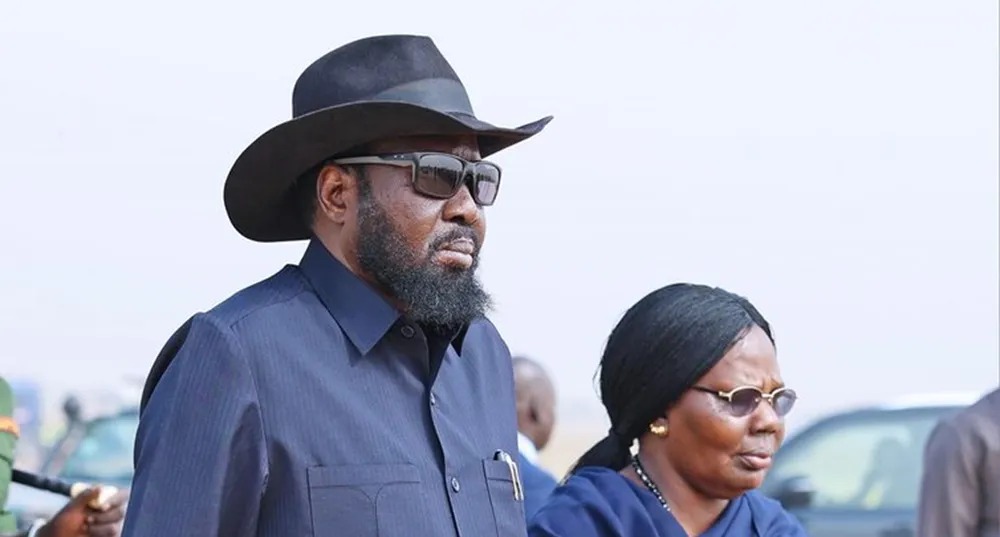In a recent open letter published by Radio Tamazuj, Dr. Sunday de John made an emotional appeal to Adut Salva Kiir Mayardit, the daughter of President Salva Kiir, urging her to privately advise her father to rescue the nation from economic collapse and institutional decay. The appeal is well-written, respectful in tone, and perhaps well-intentioned—but it is fundamentally flawed. It reflects the tragic normalization of personalized governance in South Sudan, where citizens are asked to rely on the kindness and influence of a president’s daughter rather than the authority of public institutions or the power of the people.
The letter turns a national crisis into a private affair. It places hope not in citizens, institutions, or the constitution-crafting, but in the invisible influence of someone who holds no public office. This quietly affirms a dangerous idea—that South Sudan is no longer governed by law, but by lineage; that its survival depends not on civic action or democratic reform, but on whether the right words are whispered in the family compound in J1. That is not leadership. That is captivity in another form.
Adut Salva Kiir may be a person of good character. Her humanitarian work through her foundation is commendable. But she is not an elected nor selected official. She was not chosen by the people. She does not speak on behalf of the citizens of South Sudan. Elevating her as the potential savior of the nation undermines the basic idea of democracy, where power and legitimacy come from the people—not from bloodlines, family names, or palace influence.
A deeper problem exposed in Dr. Sunday’s letter is the culture of submission and political begging that has taken root in South Sudan. Citizens no longer demand justice; they plead for it. Intellectuals no longer challenge power; they appeal to it with soft language and deferential tones. This culture is the product of decades of militarized rule, where open dissent is dangerous and survival requires silence or flattery. But a people that begs its rulers for basic dignity is not truly free. A society that teaches its citizens to appeal to relatives of power instead of holding leaders accountable has abandoned the democratic path. This mentality must be confronted, not romanticized.
This is not a time for poetic begging. It is a time for principled accountability and real change. South Sudan is not a helpless nation that must appeal to the president’s inner circle for mercy. It is a sovereign republic whose people have every right to demand justice, transparency, and reform and change. The country’s economic suffering is not the result of fate, but of deliberate policies, corruption, and elite capture. These are political problems that require political solutions—not quiet diplomacy within the president’s family quarters.
We must be clear: the culture of personalizing governance is the disease, not the cure. The same system that marginalizes institutions and concentrates power in private hands is what brought South Sudan to this crisis. Calling upon another unelected individual—even with noble intentions—only deepens that problem. It sends the wrong message: that the people are powerless and the only path to change is through the personal favor of those born into the presidency.
South Sudanese are not subjects. They are citizens. They are not voiceless victims waiting to be saved by a daughter’s plea. They are rightful owners of their country’s future. To ask for change from the private corridors of J1 is to ignore the power of the people themselves. It is to surrender the republic to the realm of family rule.
This moment requires courage, not caution. It demands that we speak truth to power, not through whispers behind closed doors, but through open calls for public accountability. Let us respect Adut as a citizen and as a humanitarian, but let us reject the idea that our collective future rests on her influence within her family. That is not democracy. That is dynastic politics disguised as hope.
The struggle for South Sudan’s liberation must now move beyond symbolism and soft appeals. It must move toward civic empowerment, institutional rebuilding, and popular resistance to all forms of authoritarianism—whether in uniform or behind the presidential gate. Let us not place our dreams in the hands of one family. Let us place them in our own hands, together. Because South Sudan does not belong to a few. It belongs to us all.
The writer, Samuel Peter Oyay, is a South Sudanese political activist, strategist, and commentator with over two decades of experience in governance and management. He can be reached via samualjago@yahoo.com
The views expressed in ‘opinion’ articles published by Radio Tamazuj are solely those of the writer. The veracity of any claims made is the responsibility of the author, not Radio Tamazuj.




